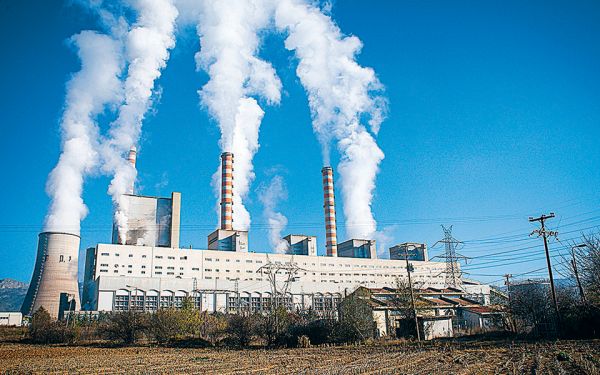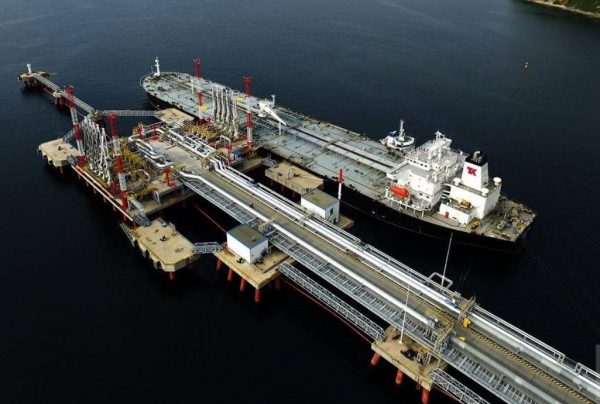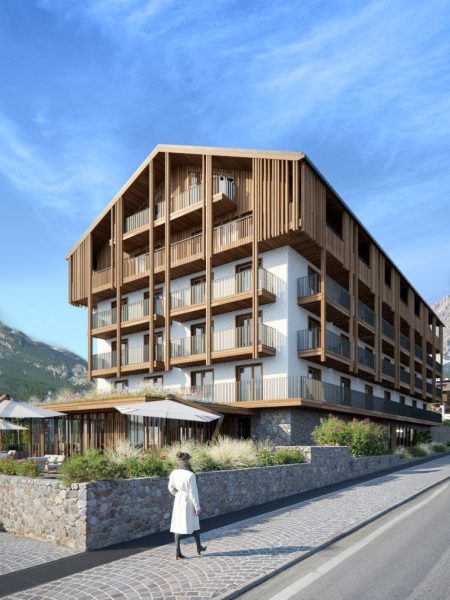
Pollution has no borders. It does not observe imaginary lines or dividers on the map. This is demonstrated by the new report of Bankwatch and the Center for Research on Energy and Clean Air on the consequences of the operation of 18 lignite power plants in the countries of the Western Balkans, which is presented today by OT.gr.
For the three years 2018-2020 alone, exceeding the limits on pollutants released by lignite plants in Bosnia and Herzegovina, Kosovo, Montenegro, northern Macedonia and Serbia are blamed for the deaths of 12,000 people, including 7,000 in EU countries and 240 deaths in Greece only for 2020. The country that suffered the most from these emissions excesses was Italy, with 605 deaths, followed by Serbia.
The health costs in the EU countries due to these breaches in the Balkans are also huge, estimated at between 4.4 and 8.9 billion euros for 2020. At the country level, the EU countries bordering the Western Balkans, such as Italy, Greece, Croatia, Hungary and Romania, have the greatest burden on the health sector from cross-border pollution.
However, when other parameters affected by pollution are added to the mathematical models of the researchers – in addition to citizens’ health care and national health systems – such as reduced productivity, then for 2020 the cost due to the excesses of pollutants released by the Coal mines in the Western Balkans are estimated at 6 to 12.1 billion euros. In Greece the cost reaches 847 million euros. It is followed by Italy with about 3 billion euros, Serbia with 1.7 billion euros, Hungary with 1.5 billion euros and Romania with 1.3 billion euros.
The study
In particular, the study demonstrated, inter alia:
· The 18 lignite plants in the Western Balkans in 2020 exceeded the permissible limits on sulfur dioxide (SO2) emissions by 6.4 times. In fact, their emissions were 2.5 times higher than the total emissions of the 221 EU lignite and coal units.
· Lignite power plants in the Western Balkans are responsible for 19,000 deaths, from 2018 to 2020, of which 10,800 in EU countries and the rest in the Western Balkans. The 12,000 deaths (out of 19,000) come from exceeding the emission limits in the same period, proving the disastrous consequences of the violation of the legislation in force in the Balkan countries, which, remarkably, falls far short of its strictness in the EU.
· EU countries import 8% of the electricity produced by the 18 lignite plants in the Western Balkans. During the three years 2018 – 2020, out of the 27 EU member states, Greece is the second largest importer of electricity (with 7.3 TWh). First was Croatia with 10.2 TWh, followed by Hungary and Romania.
Hourly data on the amount of electricity transmitted through the electricity transmission networks and the hourly energy mix of each country were used to calculate the coal-fired energy exported from the Balkans to the EU. Thus, in the period 2018 – 2020 the EU imported 25 TWh (terawatt hours) of electricity, which corresponds to 8% of total coal energy production in the Western Balkans.
However, the researchers of the report noticed something paradoxical. Although EU electricity imports from the Western Balkans account for only a minimum of 0.3% of total EU electricity consumption, the impact of gaseous emissions is extreme. That is, SO2 emissions corresponding to these imports account for 50% of total emissions from all EU lignite plants by 2020. This is because energy production in the Western Balkans emits about 300 times more SO2 than plants in the the rest of the EU.
It is noteworthy that North Macedonia and Montenegro have pledged to become completely independent of lignite by 2027 and 2035 respectively. However, the other countries, especially Serbia and Bosnia, which also have the lion’s share of lignite electricity generation in the Western Balkans, have not made a similar commitments.
“It is clear that the EU must take action to effectively protect the health of its citizens. It is necessary to ensure that environmental legislation also applies to electricity imported from the Western Balkans. In addition, in the context of the legislative package “ft for 55”, must impose significant taxes on carbon dioxide in imported electricity. However, all this cannot and should not be to the detriment of the citizens of the Western Balkans. For this reason, the EU must contribute in practice and with financial resources to the strengthening of the lignite areas in the Western Balkans, in order for the transition to the post-lignite period to take place in a socially just way “, comments analyst for think tank “TheGreenTank” Mr. Nikos Mantzaris speaking to OT.gr.
Impact on health and work
In 2020, the countries most affected by the unit’s high emissions in the Western Balkans were Italy, Greece and Serbia. And the impact on health is not limited to deaths as emissions excesses in 2018, 2019 and 2020 of all coal plants in Bosnia and Herzegovina, Kosovo, Montenegro, North Macedonia and Serbia are estimated to be associated with 130,000 days of asthma symptoms in children living in the EU. In addition, more than 11,000 children contracted bronchitis during the same period, more than 50% of all cases of bronchitis in children. In addition, hospital admissions due to cardiovascular and respiratory symptoms amounted to 3,000, of which 1,800 hospital admissions in the EU.
Excess emissions also affected productivity. An estimated 6 million working days were lost, with almost 3.5 million in EU countries and the rest in the Western Balkans.
Latest News

Cost of Living: Why Greece’s 3% Inflation Is Raising Alarm
Greece appears to be in a more difficult position when it comes to price hikes, just as we enter the era of Trump’s tariffs.

Fitch Ratings Upgrades the Four Greek Systemic Banks
NBG’s upgrade reflects the bank’s ongoing improvements in its credit profile, Fitch notes in its report, including strong profitability, a reduction in non-performing exposures (NPEs), and lower credit losses

Trump to Announce Sweeping New Tariffs Wednesday, Global Retaliation Expected
With Trump's announcement just hours away, markets, businesses, and foreign governments are bracing for the fallout of one of the most aggressive shifts in U.S. trade policy in decades.

Inflation in Greece at 3.1% in March, Eurostat Reports
Average inflation in the eurozone settled at 2.2%, compared to 2.3% in February

Greece’s Unemployment Rate Drops to 8.6% in February
Despite the overall decline, unemployment remains higher among women and young people.

Jerry Kalogiratos Highlights Key Role of Energy Transition and Data Demand in LNG Outlook
Energy transition and the prospects of LNG were discussed at Capital Link’s 19th Annual International Maritime Forum, during a panel discussion with Jerry Kalogiratos (Capital Clean Energy Carriers Corp.)

Santorini Safe and Ready for a Dynamic Tourism Season
Authenticity, cultural heritage, and genuine experiences at the center of Santorini's new promotional campaign

Electricity Bills: Greece Announces Reduced Tariffs Schedule
Greece will now offer lower electricity rates between 11:00-15:00 and 02:00-04:00

Chevron Confirms Eyeing Natural Gas Exploration South of Crete
Chevron recently declared its intent to explore a third area, south of the Peloponnese.

Evangelos Marinakis: A time of change from which shipping can benefit
Speaking at the 19th Annual Capital Link International Shipping Forum Evangelos Marinakis stressed the challenges that shipping faces today












![Τουρκία: Μεγάλες βλέψεις για παραγωγή ηλεκτρικών οχημάτων [γράφημα]](https://www.ot.gr/wp-content/uploads/2025/03/ot_turkish_autos-90x90.png)











![ΕΛΣΤΑΤ: Αυξήθηκε η οικοδομική δραστηριότητα κατά 15,6% το Δεκέμβριο [πίνακες]](https://www.ot.gr/wp-content/uploads/2025/03/DSC9655-2-1024x569-1-90x90.jpg)

















 Αριθμός Πιστοποίησης
Αριθμός Πιστοποίησης